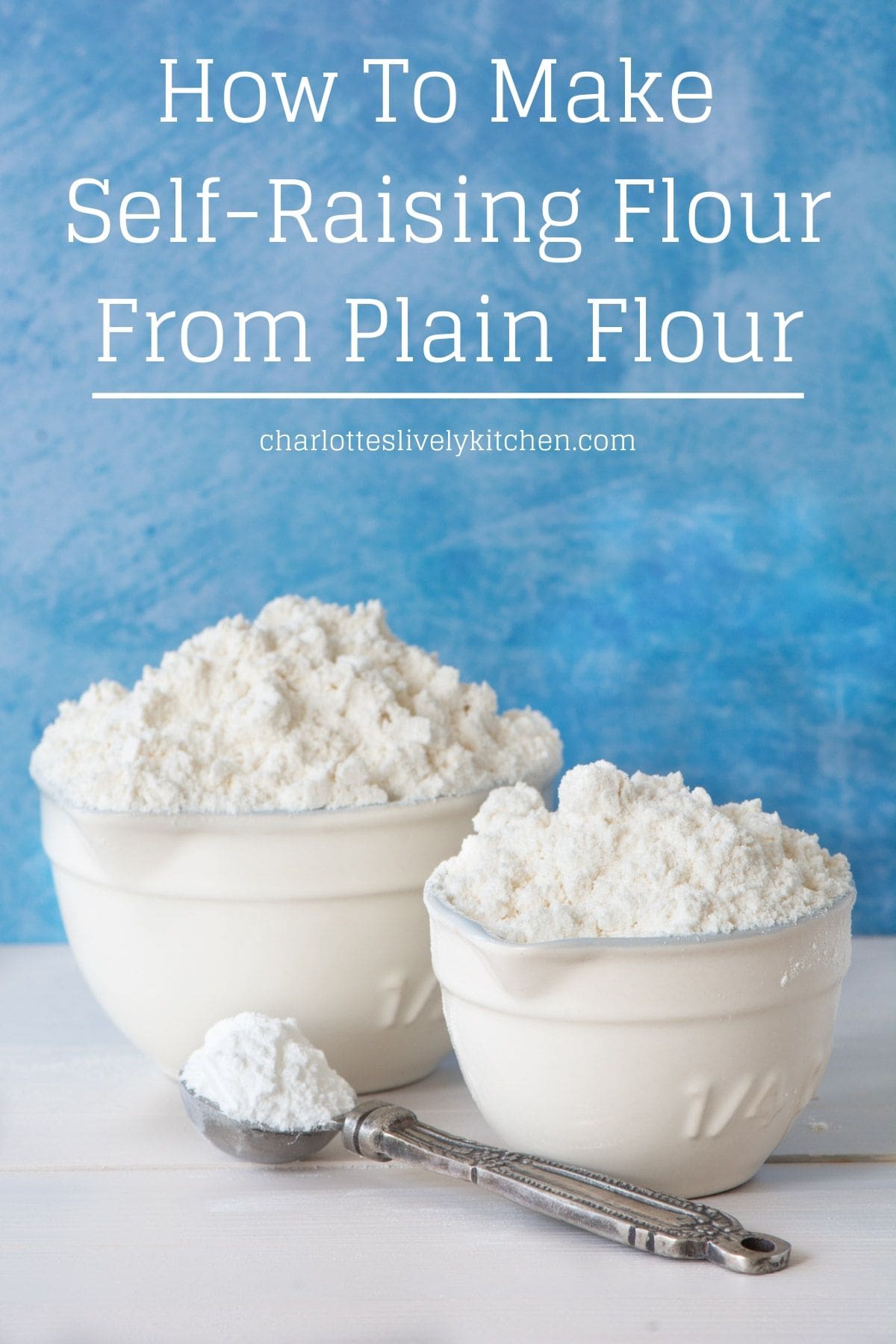
You can also use cake flour or all purpose flour. Think of it this way theres at least 5-10g of variance every time a recipe calls for a cup of anything anyway.
The ratio of baking powder to flour at 1 tsp per cup if fine if you want self rising type flour and is enough lift in some cakes.
Amount of baking soda per cup of flour. For baking soda which is used if the recipe has a considerable amount of acidic ingredients use 14 teaspoon soda for each cup of flour. What is the ratio of baking powder to plain flour. Just add 2 teaspoons of baking powder for each 150g6oz1 cup plain flour.
Good rule of thumb. I usually use around 14 teaspoon of baking soda per 1 cup of flour in a recipe. Baking soda CAN leaven a baked good when exposed to heat.
How do you make 250g plain flour into self-raising. So if a recipe calls for 250g of self-raising flour and you only have plain you need 5 of that 250g to be baking powder. Just so how much baking soda do you use per cup of flour.
The general rule is to use 1 to 1-14 teaspoons baking powder per cup of flour. On the other hand baking soda should be added at 14 teaspoon per cup of flour. For baking soda which is used if the recipe has a considerable amount of acidic ingredients 1 cup of cake flour weighs 115 grams Baking powder should not be confused with baking soda as the latter is four times stronger than baking powder For baking soda which is used if the recipe has a considerable amount of acidic ingredients liquids.
The ratio of baking powder to flour at 1 tsp per cup if fine if you want self rising type flour and is enough lift in some cakes. However this batter will be very thick and dense thanks to the sour cream and oil. The extra baking soda is there to ensure you dont end up with a dense oily cake.
If your recipe does not call for baking powder but does call for baking soda reduce the amount of baking soda by 12 tsp per cup of self-rising flour you are using. Baking soda and baking powder are both chemical leavening agents meaning they help baked goods rise. This page will convert baking soda from units of weight such as grams and ounces into units of volume such as teaspoons tablespoons and cups.
This can be used to. For each cup of cake flour use 1 34 teaspoons baking powder. Whisk or sift the flour and baking powder together before using.
If using all-purpose flour in recipes then convert to a UK version of self-rising by adding 2 teaspoons baking powder per cup of flour. Now Im assuming thats a general recommendation when the recipe does NOT include BS since one source I just read says to use about ½ teaspoon baking soda and ½ teaspoon baking powder for each 2 cups flour If I followed the general guidelines noted earlier Id use 2 tsp. I found a blog recipe for lemon blueberry muffins using sour.
A general measurement rule is for every cup of all purpose flour add a teaspoon of baking powder and 14 teaspoon of salt to the mix. Do not add baking powder to flour that is already labeled as self-rising Also keep in mind that self-rising flour wont last as long on the shelf as all purpose flour. 1 cup of AP flour to 15 teaspoon of baking soda.
Basic flour conversion chart. 2 1 4 cups. On the other hand baking soda should be added at 1 4 teaspoon per cup of flour.
I usually use around 1 4 teaspoon of baking soda per 1 cup of flour in a recipe. 1 cup all purpose flour 1 tsp baking powder 1 2 tsp salt 1 cup self rising flour. The general rule of thumb with the baking powder to flour ratio is 1 to 2 teaspoons for 1 cup of flour.
Baking powder should not be confused with baking soda as the latter is four times stronger than baking powder. How much baking soda do you use per cup of flour. The general rule is to use 1 to 1-14 teaspoons baking powder per cup of flourOn the other hand baking soda should be added at 14 teaspoon per cup of flourNote.
However if you have a recipe that works and the above ratios are not followed DO NOT adjust the recipe. Adding a small amount of acid such as lemon juice or buttermilk to your batter will heighten the reaction. While it may be tempting to replace baking soda with baking powder do not do so.
Baking powder is a combination of baking soda and cream of tartar and is about one-third to one-quarter as strong as the soda. A cup of self-raising flour actually contains less flour than a cup of all-purpose flour because the self-raising flour also contains salt and leavening agents. Substituting the all-purpose flour for self-raising flour means omitting or at least changing the amount of salt and baking powder in a recipe because the self-raising flour already.
For each cup of flour add 1 tsp. Of cream of tartar and 12 tsp. Think of it this way theres at least 5-10g of variance every time a recipe calls for a cup of anything anyway.
If the recipe lists it in cups add the x amount of cups of flour directly into the bowl of your weighing scale then add 5 baking powder. You can also use cake flour or all purpose flour. To create self-raising flour from plain flour - for 150g1 cup plain flour use half-teaspoon baking powder and half-teaspoon of bicarbonate soda also known as baking soda.
32 Related Question Answers Found.
